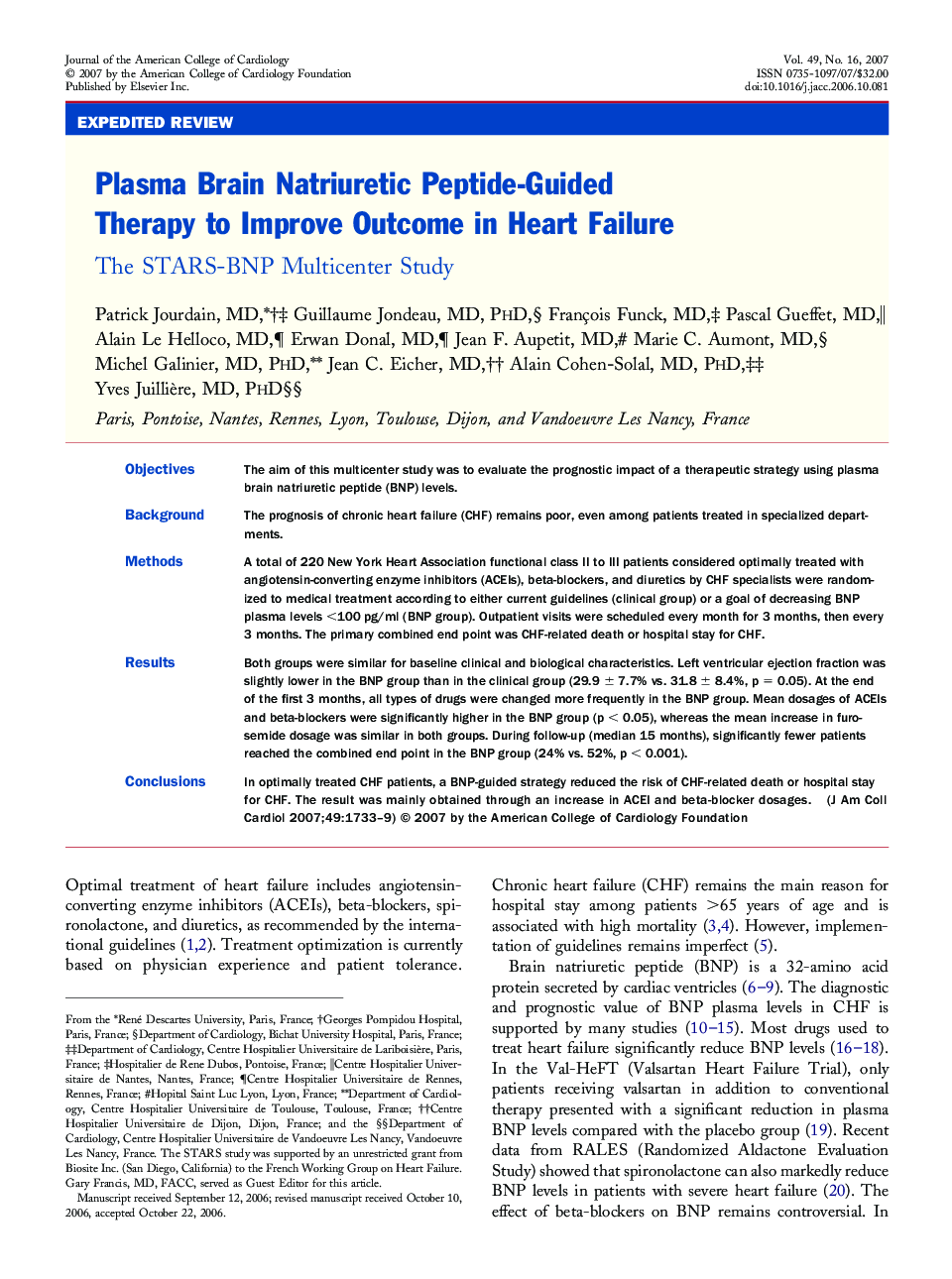| Article ID | Journal | Published Year | Pages | File Type |
|---|---|---|---|---|
| 2954948 | Journal of the American College of Cardiology | 2007 | 7 Pages |
ObjectivesThe aim of this multicenter study was to evaluate the prognostic impact of a therapeutic strategy using plasma brain natriuretic peptide (BNP) levels.BackgroundThe prognosis of chronic heart failure (CHF) remains poor, even among patients treated in specialized departments.MethodsA total of 220 New York Heart Association functional class II to III patients considered optimally treated with angiotensin-converting enzyme inhibitors (ACEIs), beta-blockers, and diuretics by CHF specialists were randomized to medical treatment according to either current guidelines (clinical group) or a goal of decreasing BNP plasma levels <100 pg/ml (BNP group). Outpatient visits were scheduled every month for 3 months, then every 3 months. The primary combined end point was CHF-related death or hospital stay for CHF.ResultsBoth groups were similar for baseline clinical and biological characteristics. Left ventricular ejection fraction was slightly lower in the BNP group than in the clinical group (29.9 ± 7.7% vs. 31.8 ± 8.4%, p = 0.05). At the end of the first 3 months, all types of drugs were changed more frequently in the BNP group. Mean dosages of ACEIs and beta-blockers were significantly higher in the BNP group (p < 0.05), whereas the mean increase in furosemide dosage was similar in both groups. During follow-up (median 15 months), significantly fewer patients reached the combined end point in the BNP group (24% vs. 52%, p < 0.001).ConclusionsIn optimally treated CHF patients, a BNP-guided strategy reduced the risk of CHF-related death or hospital stay for CHF. The result was mainly obtained through an increase in ACEI and beta-blocker dosages.
